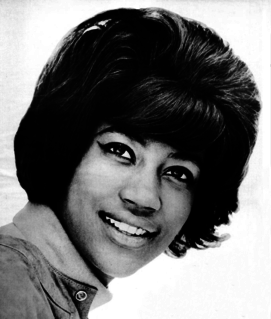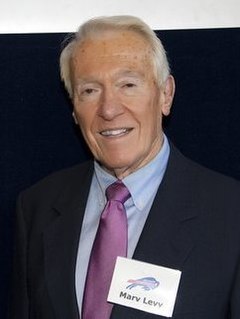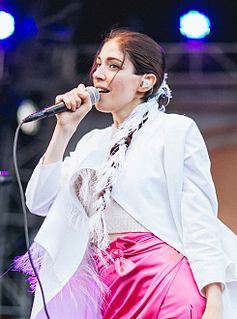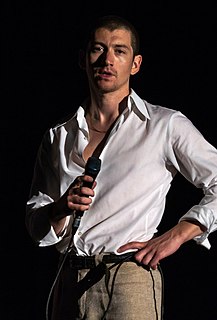A Quote by John Sexton
Having photographed the landscape for a number of years and specifically working with trees and in the forest I found, without consciously thinking about it, that it was a great learning experience for me in terms of organizing elements.
Related Quotes
I think a way to behave is to think not in terms of representative government, not in terms of voting, not in terms of electoral politics, but thinking in terms of organizing social movements, organizing in the work place, organizing in the neighborhood, organizing collectives that can become strong enough to eventually take over - first to become strong enough to resist what has been done to them by authority, and second, later, to become strong enough to actually take over the institutions.
In the case of two actors connecting with each other and trusting each other, our bodies have memories without us having to consciously think about it, so rather than think, "Oh, I must think about my daughter dying," you just let that go and trust that you have all the emotions you need in there, and by losing yourself in the scene, that stuff kicks in without having to spend the day thinking about horrific things happening to your own child.
I've never found anything to be lacking in a blurry canvas. Quite the contrary: you can see many more things in it than in a sharply focused image. A landscape painted with exactness forces you to see a determined number of clearly differentiated trees, while in a blurry canvas you can perceive as many trees as you want. The painting is more open.
If I'm working on a set of songs, and thinking about putting them together in a collection, I start to think about what they have in common. Either on purpose or without meaning to, I shape them all in the same kind of way, because I'd rather the album feel like a galaxy of things that all have to do with each other. I do that with sonic elements, too - it's a matter of each record having its own specific identity.
Whenever learners or those beyond learning awaken the mind, for the first time they plant one buddha-nature. Working with the four elements and five clusters, if they practice sincerely they attain enlightenment. Working with plants, trees, fences and walls, if they practice sincerely they will attain enlightenment. This is because the four elements and five clusters and plants, trees, fences and walls are fellow students; because they are of the same essence, because they are the same mind and the same life, because they are the same body and the same mechanism.
I do think that I'm a big believer in having an idea or having ideas and just tucking them away in the back of your brain. Even if you aren't consciously thinking of them, I think they simmer. You're working on them, even if you don't know you're working on them, and I think having something in your head for a while is a valuable thing.
I can go into the wilderness and not see anyone for days and experience a kind of space that hasn't changed for tens of thousands of years. Having that experience was necessary to my perception of how photography can look at the changes humanity has brought about in the landscape. My work does become a kind of lament.



































